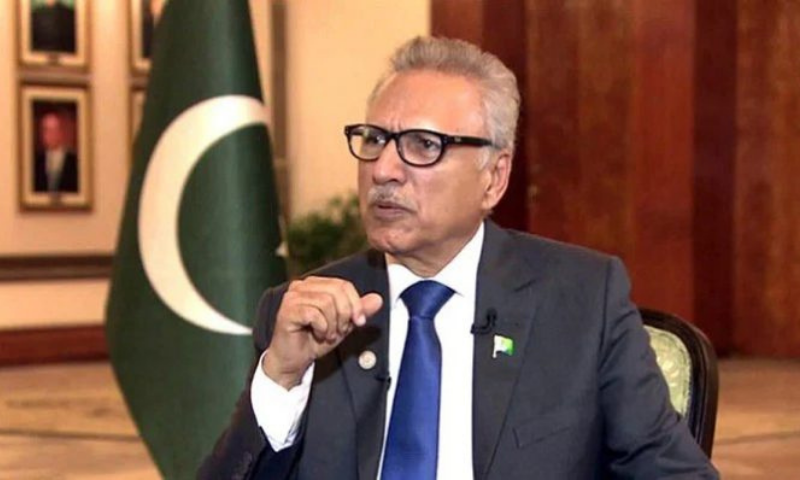By Anzal Amin
ISLAMABAD: President Dr Arif Alvi on Thursday citing an immense potential in tourism sector of Gilgit-Baltistan, called for a special focus on the development of human as well as natural resources of the region.
He, in a meeting with elected members of Gilgit-Baltistan Council, reiterated the resolve for GB’s durable socioeconomic development.
Discussing the current situation and the problems faced by GB, he said the GB people were educated and highly skilled, and the literacy ratio in the region was also pleasing.
President Alvi also stressed the need to uplift the GB’s agriculture and farming sectors. He also assured the delegation to convey the issues faced by the GB people to the relevant forums.
Earlier, President Dr Arif Alvi on Wednesday, after expressing his concerns over 26 million out-of-school children in the country, called for launching an education emergency and devising an out-of-the-box solution to cater to these highly serious challenges being faced by the country.
Speaking at a function to mark World Education Day, President Alvi said that there is a need for an education emergency and other drastic measures like double shifts in educational institutions and utilising mosques for teaching purposes as well.
Besides others, the event was attended by Federal Education Secretary Waseem Ajmal Chaudhry, Special Secretary Mohiyuddin Wani, Director General of the Pakistan Institute of Education Dr Muhammad Shahid Saroya, Chairman of the Federal Board of Intermediate and Secondary Education (FBISE) Qaiser Alam, and Executive Director of Inter Board Committee of Chairmen Dr Ghulam Ali Mallah. Whereas, President of the Islamabad Chamber of Commerce and Industry Ahsan Bakhtawari, head of the Allahwala Trust Shahid Anwar, and representatives of USAID, UNICEF, UNECSO, and JAICA attended the event.
President Alvi said that since Pakistan’s inception, around 55,000 schools have been built, and to enrol all OOSC, an equal number of more schools are required, which is something difficult due to budget issues and in such a scenario, he said that an out-of-the-box solution is required to tackle this issue.
The said function was held just two days after the launch of an enlightening report by the Pakistan Institute of Education (PIE), which pointed out low spending on education, a poor pupil-teacher ratio, missing basic facilities, and alarming over 26 million out-of-school children (OOSC). He also suggested a mechanism to engage the newly graduated and intermediate students in teaching the OOSC by offering them a stipend.
He also advocated the promotion of online education, besides extending the facilities to doctors, engineers, and the trained workforce in the country to discourage the trend of them moving abroad.
According to a press release issued by the Ministry of Education, the President further said that the alarming figure of 26 million OOSC was worrisome for the country and exemplified other countries, including Sri Lanka and Bangladesh, where the children’s enrolment was around 98 to 100 percent. He said educating the children was of paramount importance to producing a skilled and qualified workforce, not merely labourers. The president appreciated the contribution of partner organisations and stressed that the country should take advantage of the services of these organisations. Talking about using the mosque’s platform as a centre of learning, Dr Alvi said that worship places were equipped with all basic facilities, including electricity and clean drinking water, which can be used to teach OOSC at alternate timings. He also highlighted the ratio of 15-20 percent of dyslexia disease in the country and appreciated the measures taken for the suffering children, adding that enrollment in higher education was around 10–12 percent in Pakistan compared to 24 percent in the neighbouring countries, which should also be increased.



